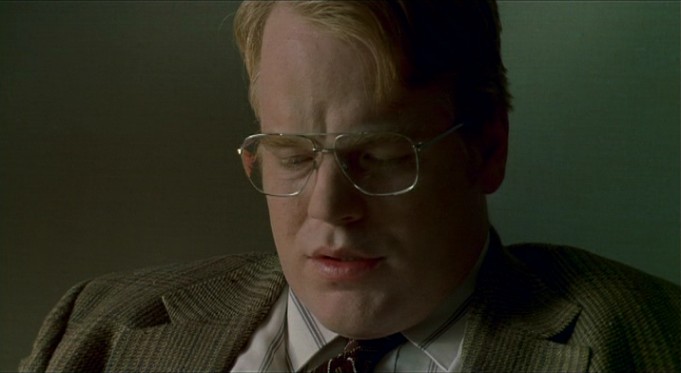
Satire is one of the hardest genres to write. To make a good satirical film, the writer must use humor to criticize a societal problem in a way that shocks the audience and makes them question the problem or their apathy toward it.
Unfortunately, due to changing public perception, many satires quickly become dated. Here, we’ll look at 15 satires that employed dark humor, which remain shocking and socially relevant regardless of their time periods.
15. Four Lions (2010, Chris Morris)

This is the feature film debut of famed satirist Chris Morris, who has been equally lauded and condemned throughout his long career for his uncompromising treatment of many controversial subjects. In “Four Lions”, he tackles one of the most controversial topics of the 21st century: the war on terror.
The film follows a group of radical Muslim men who are training themselves to become suicide bombers. After extensive training and preparation, they prepare to commit an act of terror; however, due to their incompetence and rash behavior, things don’t go according to plan.
The premise suggests an offensive portrayal of the Islamic religion, but “Four Lions” is much smarter than that. The film remains tasteful and never mocks Islamic beliefs, but rather shows disgust at the people who bastardize the religion by using it to justify immoral actions. It’s a powerful, smart, and very funny satire that can’t be missed.
14. Heathers (1988, Michael Lehmann)
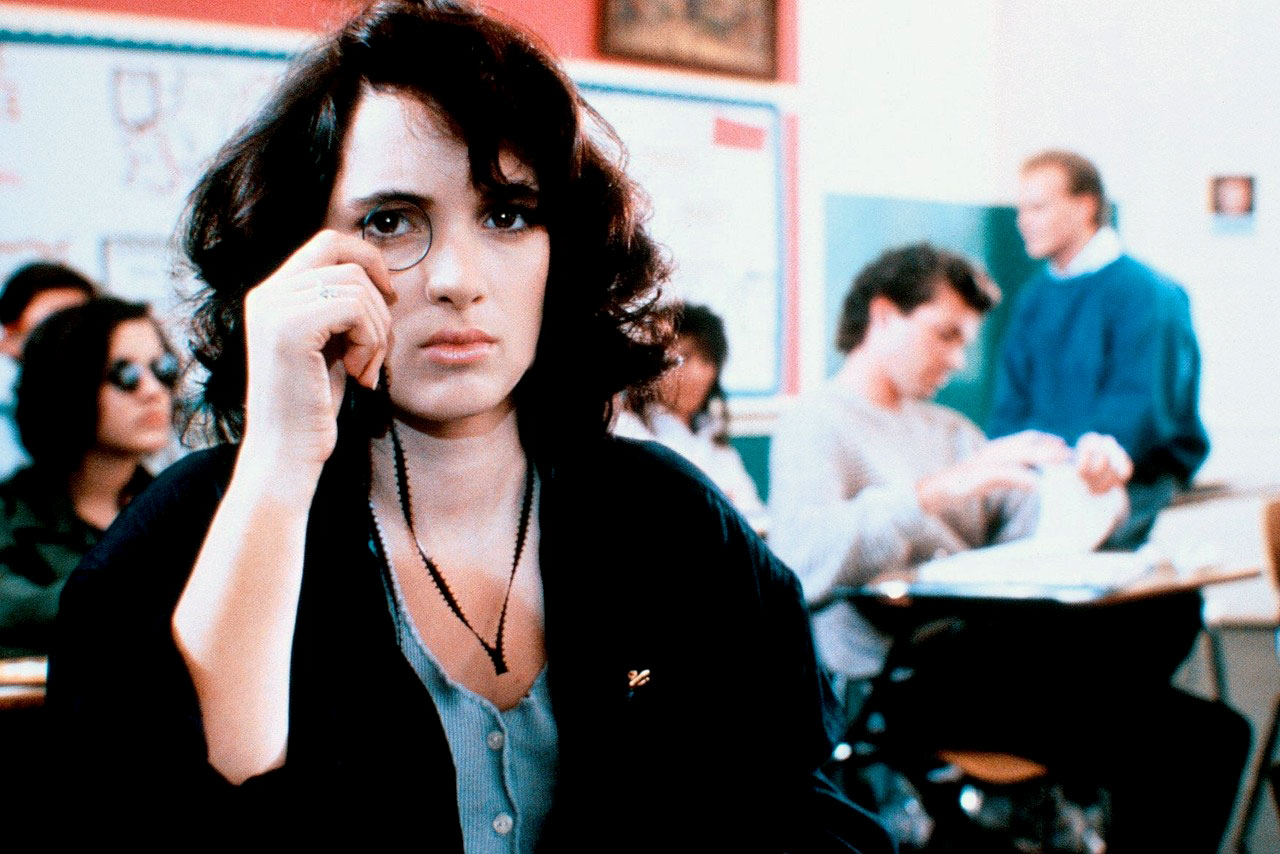
“Heathers” was released at a time when the teen genre was at the height of its popularity, and the film cynically subverted the genre in a way that was unheard of at the time.
The film focuses on Veronica Sawyer (Winona Ryder in a star-making role), a pretentious teenager who joins a dominating clique of three popular girls who are all named Heather. Veronica grows tired of the clique and longs to lead a normal life. Around this time, she develops a fascination for J.D. (Christian Slater), a rebellious outsider, after he is suspended for pulling a gun on two school bullies.
J.D. and Veronica team up in an effort to destroy the lead Heather’s reputation, but accidently kill her in the process. To cover up the accident, Veronica forges a suicide note in Heather’s handwriting. The next day, much to their surprise, Heather is more popular than ever after the community and media treat her as a tragic figure, which triggers an epidemic of suicide attempts.
The film satirizes of the media’s treatment of teen suicide, a topic that has become more pertinent in recent years, while also mocking the cliques and stereotypes of teen life.
13. Welcome to the Dollhouse (1995, Todd Solondz)
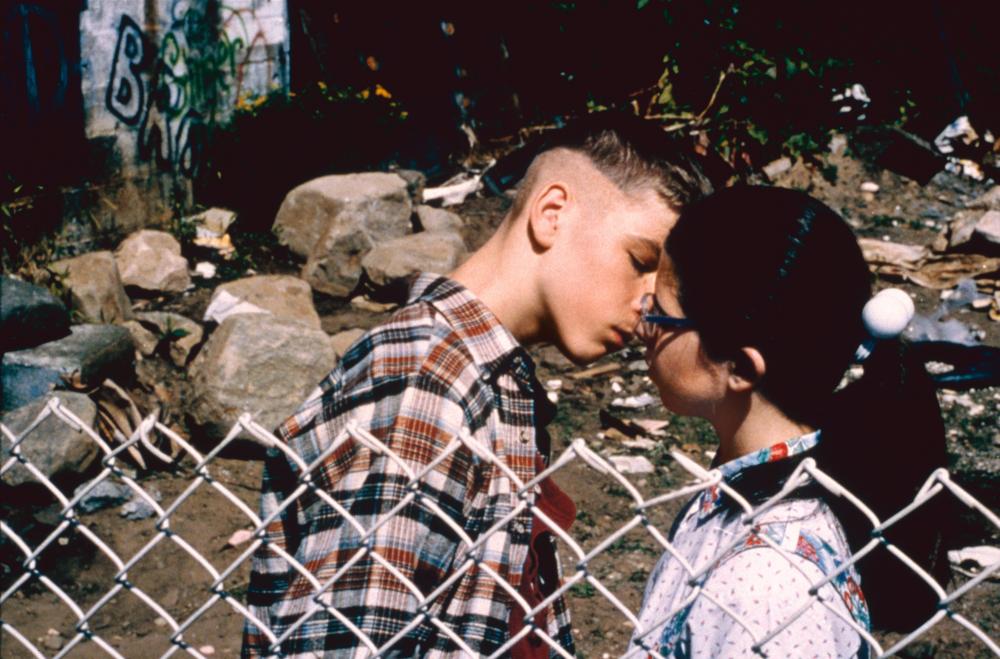
Todd Solondz’s satire of adolescence is as shocking as you could expect from the highly controversial filmmaker. Heather Matarazzo stars as Dawn Wiener, an unattractive 12-year-old girl who is hated by her family, bullied at school, regularly threatened with rape, and has an unrequited crush on a much older boy. Her only friend is an equally mistreated 10-year-old gay boy.
The film isn’t nearly as depressing as it sounds; in fact, it’s hysterically funny. Solondz uses Dawn’s life as a source of Kafkaesque humor, and what may surprise many first time viewers is that Dawn is a somewhat unlikeable character. She regularly insults and degrades other people who she believes to be inferior and, in one shocking scene, she even contemplates killing her younger sister.
“Welcome to the Dollhouse” was a critical success upon its initial release, particularly praising the film’s dark humor and Heather Matarazzo’s performance. However it wasn’t until his next film that Todd Solondz really came into the spotlight.
12. Secret Honor (1984, Robert Altman)
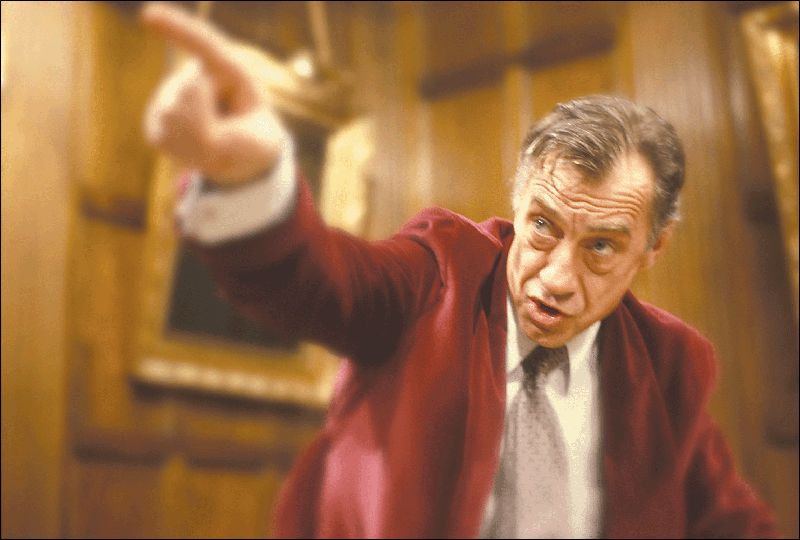
“Secret Honor” was set entirely in an office at the home of Richard Nixon shortly after his resignation. Philip Baker Hall plays Nixon as he paces around with a bottle of whiskey and a gun, and rants in a tape recorder about his career, his depression, and his resignation.
The film relies entirely on Hall’s performance, as he is the only actor in the film. Hall looks and sounds absolutely nothing like Nixon, but here that doesn’t matter because he perfectly embodies him, portraying every mannerism of the former president with absolute accuracy.
In “Secret Honor”, Richard Nixon is portrayed as a tragic figure; a brilliant and highly influential, but ultimately a tortured man. Controversial aspects of Nixon’s life are covered, but he is never demonized. However, we aren’t ask to condone him, either; Altman wants us to at least understand the personality and behavior of a very controversial figure.
11. South Park: Bigger, Longer & Uncut (1999, Trey Parker)
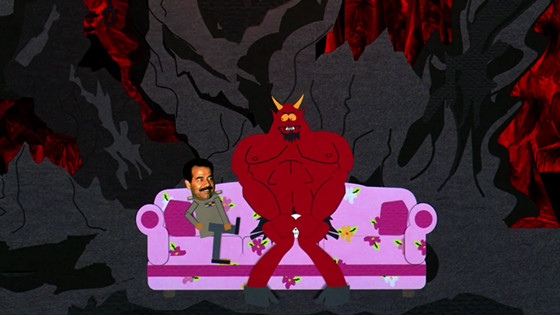
Trey Parker and Matt Stone are arguably the world’s greatest living satirists. Their long-running television series “South Park” is known for its satirical observations of topical current events, using a blend of wit and vulgarity. Due to its popularity, the release of a feature film was inevitable, but rather than produce a feature length episode, Parker and Stone went beyond what was expected both in terms of vulgarity and subject matter.
The film focuses on Stan, Kyle, Cartman, and Kenny, who see an R-rated film starring Terrance & Phillip, a Canadian comedy duo whom the boys idolize.
From the film, intended as an allegory for “South Park” itself, they learn many obscene phrases, which they begin using frequently. After using profanity in school, their parents place a ban on the film, but after Kenny dies imitating a stunt from the film, they wage war on Canada and have Terrance & Phillip arrested as war criminals.
The film tackles the issues related to censorship with special attention given to the practices of the MPAA (“Horrific, deplorable violence is okay as long as nobody says any naughty words,” one character states), while at the same time, exposing the narrow-mindedness of many American values.
It’s almost frightening how topical this movie remains today; 17 years ago, the idea of going to war over a movie seemed ridiculous, but now, as it has been proven in recent years, it seems like it could very well be a possibility.
10. American Psycho (2000, Mary Harron)
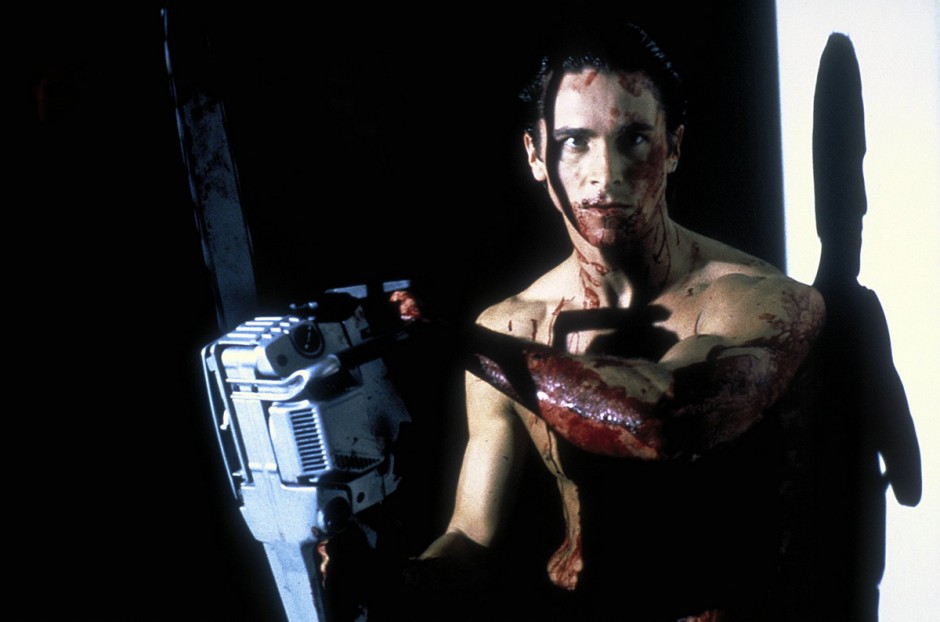
Based on Bret Easton Ellis’ damning portrait of yuppie life, Christian Bale stars as Patrick Bateman, an amoral businessman who moonlights as a serial killer.
The film, much like its source material, is highly critical of the yuppie subculture with an extensive focus on their excessive materialism. Throughout the film, Bateman’s dry, rambling narration focuses entirely on his material gain, and people are identified through what brand of clothing they’re wearing, or superficial qualities as opposed to personality traits.
The film is both disturbing and hilarious, faithfully capturing the dark satirical elements of Ellis’ novel while also providing Christian Bale with what is arguably the greatest role of his career.
9. Man Bites Dog (1992, Benoît Poelvoorde, Rémy Belvaux, André Bonzel)
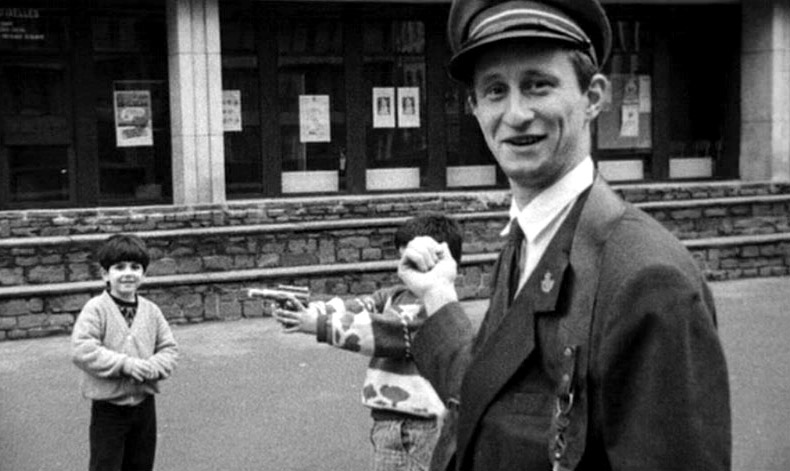
This Belgian mockumentary follows a film crew who are documenting the day-to-day life of Ben, a serial killer. At first, the crew is merely observing Ben’s crimes, but as the film progresses, the crew begins to participate in the increasingly horrific violence around them.
The film satirizes the glamorized portrayal of violence in the media and does so by portraying violence comedically for the first half, only to throw our laughter back at us in the second half. Toward the end of the film, the violence becomes more extreme and is no longer portrayed in a tongue-in-cheek manner.
“Man Bites Dog” utilizes its darkly brilliant script and perfectly balances comedy and horrific violence, but it may be too graphic for some.